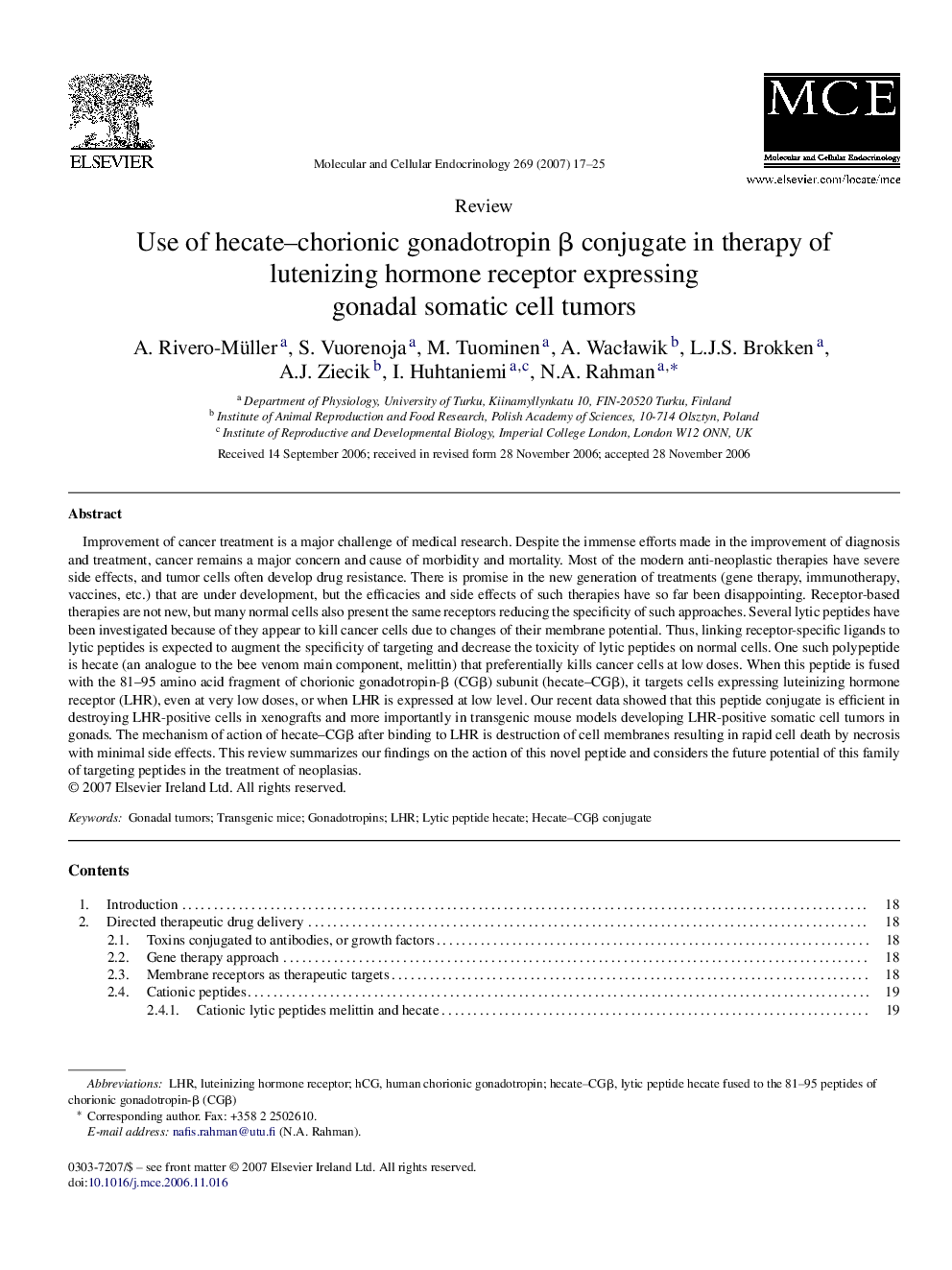| کد مقاله | کد نشریه | سال انتشار | مقاله انگلیسی | نسخه تمام متن |
|---|---|---|---|---|
| 2197920 | 1550993 | 2007 | 9 صفحه PDF | دانلود رایگان |

Improvement of cancer treatment is a major challenge of medical research. Despite the immense efforts made in the improvement of diagnosis and treatment, cancer remains a major concern and cause of morbidity and mortality. Most of the modern anti-neoplastic therapies have severe side effects, and tumor cells often develop drug resistance. There is promise in the new generation of treatments (gene therapy, immunotherapy, vaccines, etc.) that are under development, but the efficacies and side effects of such therapies have so far been disappointing. Receptor-based therapies are not new, but many normal cells also present the same receptors reducing the specificity of such approaches. Several lytic peptides have been investigated because of they appear to kill cancer cells due to changes of their membrane potential. Thus, linking receptor-specific ligands to lytic peptides is expected to augment the specificity of targeting and decrease the toxicity of lytic peptides on normal cells. One such polypeptide is hecate (an analogue to the bee venom main component, melittin) that preferentially kills cancer cells at low doses. When this peptide is fused with the 81–95 amino acid fragment of chorionic gonadotropin-β (CGβ) subunit (hecate–CGβ), it targets cells expressing luteinizing hormone receptor (LHR), even at very low doses, or when LHR is expressed at low level. Our recent data showed that this peptide conjugate is efficient in destroying LHR-positive cells in xenografts and more importantly in transgenic mouse models developing LHR-positive somatic cell tumors in gonads. The mechanism of action of hecate–CGβ after binding to LHR is destruction of cell membranes resulting in rapid cell death by necrosis with minimal side effects. This review summarizes our findings on the action of this novel peptide and considers the future potential of this family of targeting peptides in the treatment of neoplasias.
Journal: Molecular and Cellular Endocrinology - Volume 269, Issues 1–2, 15 April 2007, Pages 17–25